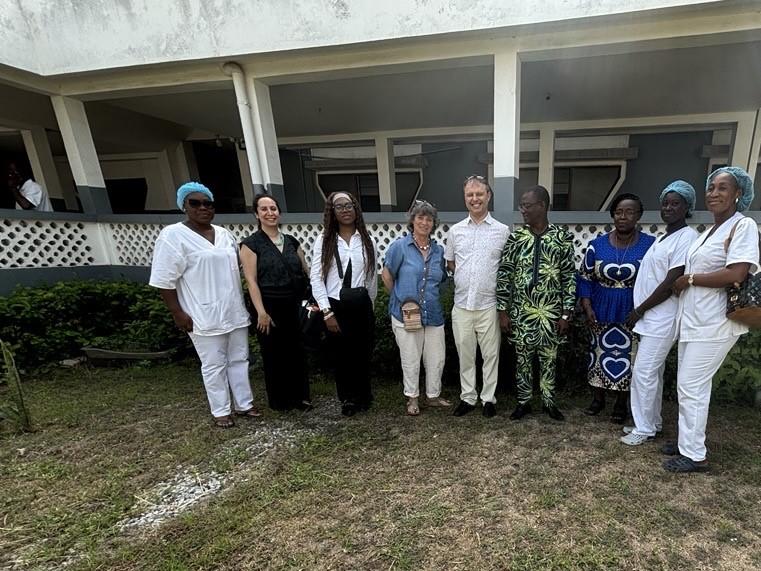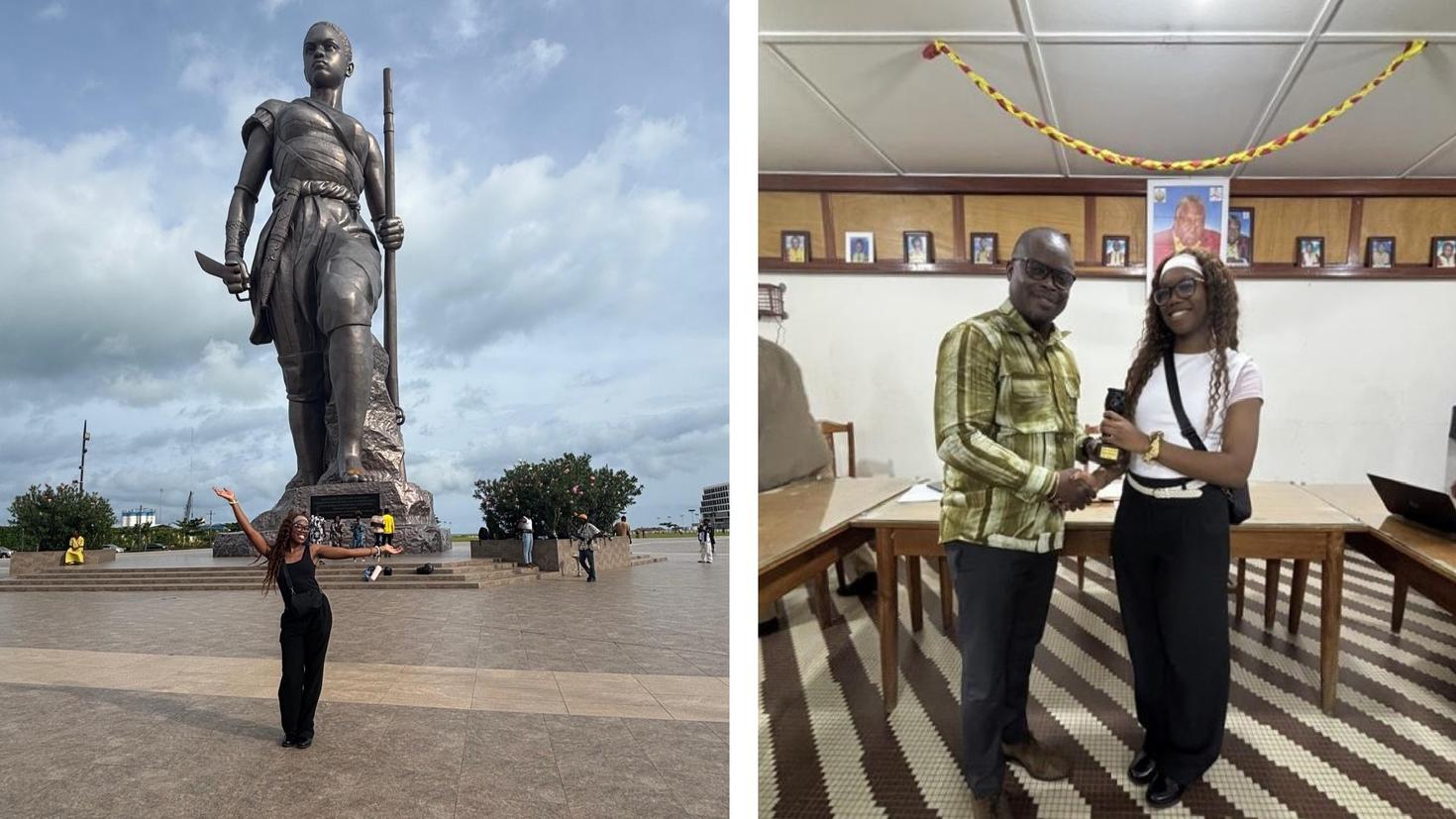As a first year Master of Public Health student at the University of Ottawa, I had the opportunity to travel to Benin for the very first time. Planned during my practicum at the International Global Health Office (IGHO) at the Faculty of Medecine, this trip turned out to be much more than just an academic journey, it became a profoundly transformative experience marked by learning, exchange, and inspiration. I discovered a country committed to reforming primary health care and resolutely looking toward the future.
This official visit by a delegation from the University of Ottawa took place as part of the implementation of the project “Combler les écarts pour la relève en santé” (CEReSA), funded by Global Affairs Canada through the Canadian International Development Scholarships 2030 program (BCDI 2030), in partnership with Colleges and Institutes Canada and Universities Canada. From my arrival at the Faculty of Health Sciences (FSS) at the University of Abomey-Calavi in Cotonou to my visits at the Regional Institute of Public Health (IRSP) in Ouidah, I met passionate professors, researchers and students dedicated to strengthening Benin’s healthcare system. These workers are doing exemplary work in training the next generation of professionals in fields such as medicine, nursing, environmental health and social work.

“Public health does not limit itself to data collection or interventions, it is fundamentally about strong human relationships, deep respect for local knowledge, and constant cultural adaptation.”
Tomedi Sarah Nkouta Sen
— First Year Master of Public Health Student at the University of Ottawa
This stay also reminded me of an essential lesson: public health does not limit itself to data collection or interventions, it is fundamentally about strong human relationships, deep respect for local knowledge, and constant cultural adaptation. The importance of exchange was also reinforced during my presentation on the services offered at the University of Ottawa, where I engaged in conversations with students interested in the program. This allowed me to get to know them on a more personal level and better understand their concerns. In turn, these discussions helped me improve our delegation’s future presentations and methods of data collection. Moreover, the dialogues I had with health interest holders provided me with a deeper understanding of the concrete challenges related to access to acre, particularly in rural areas, and the creativity required to respond effectively with limited resources.

What struck me most was the political and institutional will to build a better future. Benin is investing in its next generation, promoting gender equity in scientific fields, and strengthening academic partnerships through tangible initiatives like the BCDI 2030 program. This initiative enables reciprocal and enriching exchanges between Beninese and Canadian students, fostering ethical and sustainable collaboration.
As a future public health professional, this immersion reinforced my aspirations. I returned from Benin with new knowledge but more importantly, with a renewed vision of my role. I saw how collaboration rooted in mutual respect can truly transform health systems. This experience also emphasized the importance of centering our efforts on communities, listening to their needs and acting with humility and commitment.
This journey was only the beginning. It gave me the momentum and conviction to pursue a path grounded in social justice, health equity and international partnership. Benin, for me, will never simply be a travel memory; it is a starting point.
